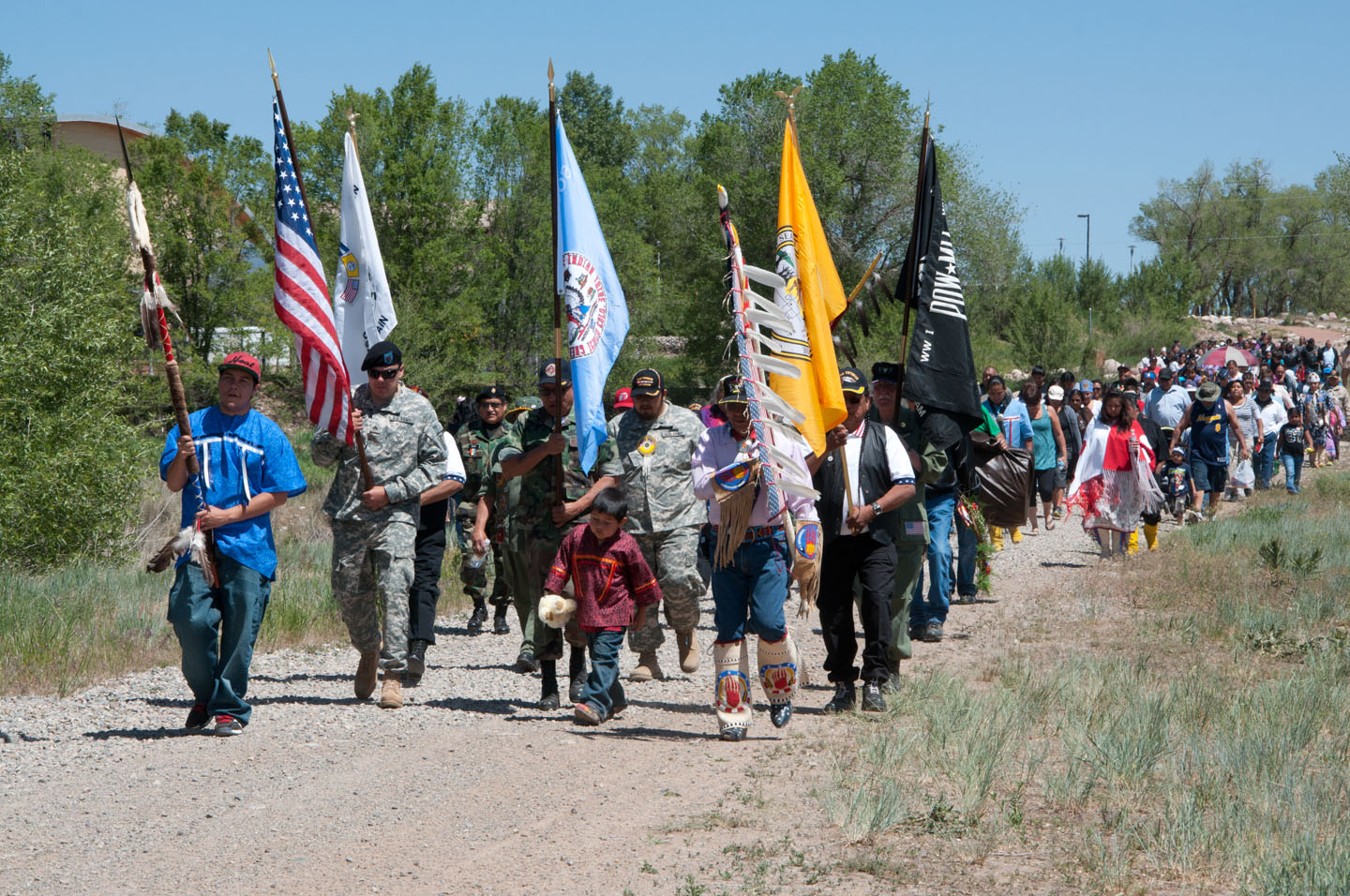The Southern Utes have always defended their homeland — whether against threats foreign or domestic, whether with firearms or by more traditional means.
“As Native people way back, the warriors were highly respected,” said Rod Grove, the Southern Ute Indian Tribe’s veterans service officer. “We should try to keep that alive and try to teach the younger kids that these people did what they had to do.”
To that end, the tribe will host its annual Day of Remembrance at 10 a.m. on Memorial Day, Monday, May 27. The event will begin at the Southern Ute Veterans Park.
Grove said veterans should be remembered for the service they rendered. Each of the 153 tribal members to have served in the U.S. Armed Forces, according to the Southern Ute Veterans Association, sacrificed much to serve their tribe and country.
“They took that challenge in order to step up and make sure our freedom stays in tact for the next generation,” Grove said. “Each generation has done that. … We were willing to put ourselves in harm’s way so that our people did not have to be disturbed.”
That was true even during World War I, when six Southern Ute tribal members served despite not being declared U.S. citizens until six years after the war ended.
“A lot of people don’t understand why Native Americans joined,” Grove said. “Our grandparents, parents, brothers, sisters, children — whatever — are buried in this country, in this soil, and it was ours. And we still think that way.”
Grove said his own experience as a young man in Vietnam left an indelible impression on him.
“I was drafted. The war was going on. I knew I was going to be sent to Vietnam. … From the day I got my orders, my chances of coming home were 50-50,” he said. “I had no idea what a third-world country was like, especially at war, at what I saw was something I had never imagined.”
Even after a year spent halfway across the world, there were still costs associated with wartime service when he came home, Grove said.
“You get on that plane and you think it’s over. It’s not. You have what the white man calls PTSD [post-traumatic stress disorder] now. You don’t know what’s wrong with you, because you’ve gone through this traumatic experience as a kid and all of a sudden you have to deal with death every day. You’re scared,” he said.
Grove said he came home to a world that had changed in his absence. But “time kind of stands still in the service,” he said, leaving him and other returning veterans at a loss for how to resume normal life.
“People say ‘Well, it’s over; forget about it.’ You can’t forget about it, because you were a part of that time,” he said. “It never ends. To those in really heated combat, it will stay with you for the rest of your life. … Sounds will always startle you. … It’s never ending.”
That’s not to say veterans can’t eventually make peace, Grove said. He said several decades removed from the war, he has again found balance in life — but he will never forget, and he now spends his days helping other veterans access the services and care they need.
“Agent Orange is another deal that you thought you got away with, and now it’s catching up to you in the 50s and 60s,” he said of the chemical herbicide that has caused long-term health problems for troops exposed in Vietnam.
Grove said he encourages people to observe Memorial Day to learn more about the men and women who fought to preserve a high quality of life.
“Growing up, I never understood,” he said. “I always wondered why certain people [veterans] would come to the house and they were treated a little differently.”
Today, he understands.

